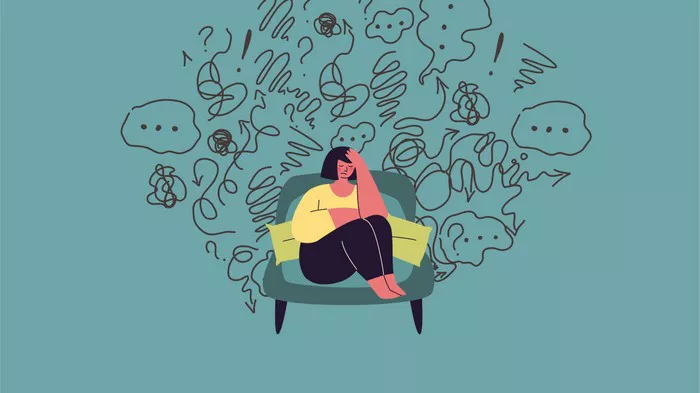Psychiatric medication prescriptions for children and teenagers in Australia have more than doubled over the past decade, coinciding with a growing mental health crisis among the youth. Recent government data indicates a significant rise in the use of stimulants and antidepressants among individuals under 18, alongside a smaller increase in antipsychotic prescriptions.
Doctors attribute this surge in medication use to escalating mental distress among young people, as well as an increase in families seeking help. “We’ve seen a very substantial increase in mental illness in young people over the last 15 years,” stated Patrick McGorry, a psychiatrist and professor of youth mental health at Melbourne University. “If you’re not observing increases in medications and access to psychological therapies during this period, then there’s something wrong.”
How Much Are Mental Health Prescriptions to Kids Increasing?
Data from the last decade reveals alarming trends in psychiatric prescriptions for children:
Prescriptions for stimulants, primarily used to treat ADHD, nearly quadrupled, rising from 101 prescriptions per 1,000 under-18s in 2013 to 380 per 1,000 in 2023.
Antidepressants were prescribed at a rate of 196 per 1,000 under-18s in 2023, marking a 165% increase since 2013.
Prescriptions for Selective Serotonin Reuptake Inhibitors (SSRIs), a class of antidepressants, more than tripled.
While antipsychotic medication was relatively uncommon, prescriptions grew by 37%.
In contrast, prescriptions for sedatives and hypnotics (sleep medications) to young people halved, while anxiolytics (anti-anxiety medications) remained steady.
This data, provided to the ABC by the federal health department, calculated annual prescription rates between 2013 and 2023 using population data from the Australian Bureau of Statistics and dispensing records from the Pharmaceutical Benefits Scheme. It is important to note that this data does not specify how many children are on psychiatric medication or the reasons for their prescriptions, as one child may receive multiple scripts in a year.
Why Has There Been an Increase in Medications?
The increase in psychiatric prescriptions for under-18s correlates with a documented rise in mental ill-health among young people, not just in Australia but globally. A major review published in the Lancet Psychiatry journal labeled it a “global crisis,” attributing it to factors such as intergenerational inequality, global instability, and the rise of social media, which has contributed to increased psychological distress.
Growing awareness of mental health conditions is another factor prompting more parents and young people to seek help. Harriet Hiscock, a pediatrician and clinical researcher at the Murdoch Children’s Research Institute, explains, “There’s less stigma among teenagers because mental health is becoming more socially acceptable. I think people are coming forward for help in ways they didn’t before.”
Doctors emphasize that medication is only one aspect of treating mental health conditions in children and should be complemented by lifestyle changes, therapy, and psycho-education. Typically, medication is considered when other treatments have proven ineffective.
Different Drugs, Different Stories: SSRIs, Autism, and ADHD
The narrative behind increased prescription rates varies by medication type. Antidepressant use has been on the rise since the 1990s, driven partly by the growing availability of SSRIs, according to the health department. These medications are increasingly prescribed for conditions beyond depression, including Obsessive-Compulsive Disorder (OCD), generalized anxiety disorder, social anxiety, and panic disorder.
Antipsychotics are primarily used to treat bipolar disorder and psychosis in adults, but they are occasionally prescribed for “behaviours of concern,” such as aggression, in autistic children. The rise in antipsychotic prescriptions coincides with a notable increase in autism diagnoses; between 2018 and 2022, the number of Australians diagnosed with autism rose by approximately 42%, according to an ABS survey.
Changes in diagnostic criteria may account for a significantly larger proportion of individuals under 25 being diagnosed as being on the autism spectrum compared to previous generations, a spokesperson from the health department noted.
Inside a Teenager’s Mind
Mental health disorders among young people have risen nearly 50% in the past 15 years. Understanding the pressures faced by adolescents today can help illuminate this issue.
ADHD diagnosis rates have not been systematically tracked, but evidence suggests that one in 20 children may have the condition. While the high rates of stimulant prescriptions might raise concerns about overprescribing, some youth psychiatrists, such as Daniel Pellen, believe the increase reflects treatment catching up to the actual number of children with ADHD.
“We believe that the substantial increase in stimulant prescriptions is largely about better education and greater availability of treatment for ADHD. This is still a significant challenge, but it is much improved compared to the past,” said Dr. Pellen, chair of the Royal Australian and New Zealand College of Psychiatrists’ youth mental health section.
Conclusion
As Australia grapples with a rising mental health crisis among its youth, the doubling of psychiatric medication prescriptions highlights the urgent need for comprehensive solutions. While medications can play a vital role in treatment, it is essential that they are part of a holistic approach that includes therapy, lifestyle changes, and community support to foster resilience and well-being in young people.
You Might Be Interested In:
-
Black Farmers Face Specific, Outsized Challenges in Rural Mental Health Crisis
-
Increase in 911 Mental Health Calls Routed to NYPD Alternative, Yet Police Still Handle Majority


